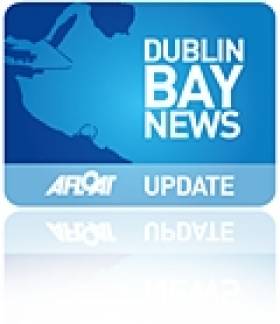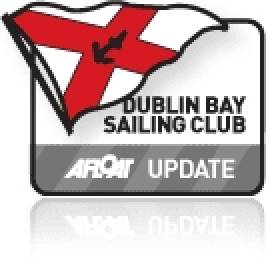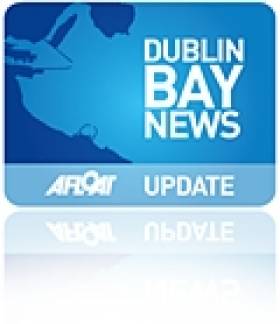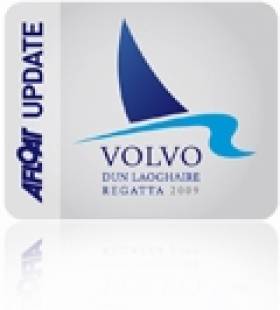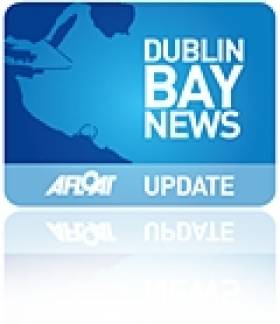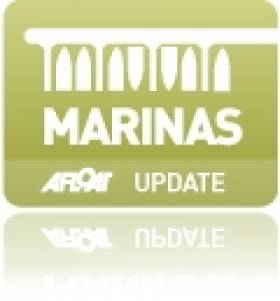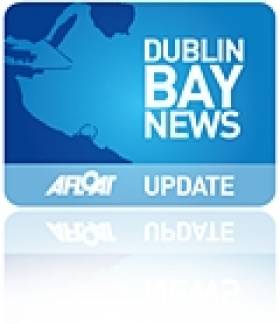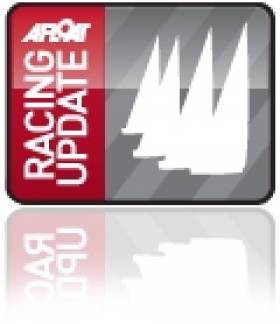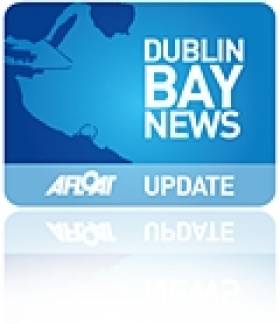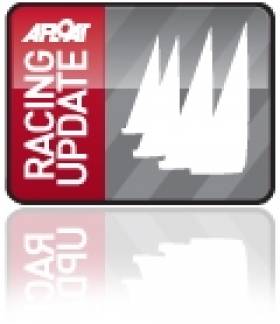Displaying items by tag: RIYC
#riyc – It's that time of year again when the Dun Laoghaire waterfront club regattas begin and In a change to the usual running order, the Top Security Royal Irish Yacht Club (RIYC) Regatta is scheduled for Saturday 24th May next. See regatta poster and entry form available to download below. That's Saturday fortnight so it's time to get yourself organised! This year, the regatta provides real value for money with two races using the ICRA Championship courses. There are courses for DBSC blue fleet keelboats, DBSC Red Fleet one design boats, SB20s, 1720 Ensign Class and for the DBSC Dinghy classes. In an addition this year, we are also having a start for the RS Class and Moths! If you would like to enter the Regatta please do so online now. Anybody interested in racing on the day will be happily accommodated on other Members' boats.
The theme is a Regatta for Everyone. Pop in with your friends for Lunch, Afternoon Tea, Barbecue or join in the fun at our 20 Something's evening event in the Wet Bar. Your friends and family are more than welcome to join in the fun. There will also be a delicious dinner served in the Dining Room. If you would like to book in for any of the social events please contact [email protected]. You can see menus and our social programme here.
We also have a crèche kindly operated by Cocoon Killiney in the RIYC library for children of 1 and up. There is a Sailing Adventure day run by the Irish National Sailing School for 4 year olds and up, at a cost of €30.00.
Highlights of the Regatta include:
Two races for all fleets with an early start.
New ICRA championship courses for the Cruiser fleet.
Adventure Day and a Crèche for the kids.
Delicious Barbecue
Pre ordered packed lunches
Ladies Lunch
Live Music
Children's Entertainment
Barbecues
Dinner
20 Something's Night
#riyc – The Royal Irish Yacht Club's (RIYC) Spring Coaching Regatta will again be held on the first weekend of DBSC racing, the 26th and 27th April on Dublin Bay.
Sailmakers Des McWilliam, Kenny Rumball, Philip Watson and Prof O'Connell will again be providing on the water training with video debriefing.
The event's timing is designed to clear the cobwebs from crews and to get them ready for the RIYC Regatta, which is in its 2014 date of Saturday 24th May and the ICRA Nationals of 13th-15th June.
The RIYC Regatta is in the normal position of the DMYC regatta because of the ICRA Nationals this year and will feature a multiple race regatta format to provide an excellent value for money event.
The RIYC Coaching Regatta is only €50 per boat for the weekend which, says organiser Paul Colton, is fantastic value.
Tactics & Strategy for Sailing Class to Be Held at Royal Irish Yacht Club
#riyc – The Royal Irish Yacht Club (RIYC) in Dun Laoghaire is staging a tactics & strategy class in advance of the forthcoming season.
The sessions will be spread over four Tuesday nights in March (4th, 11th, 18th and 25th) at the RIYC.
The sessions by sailing coach Maurice O'Connell will start at 7pm and finish at 10pm with a 15 minute coffee break.
The cost is €50.00 and its possible to book online here or by email to [email protected]
Topics will inlcude
1. Pre-race planning
· weather
· current
· expected windshifts
· competition
2. Pre-start analysis
· line bias
· bias vs first leg strategy
· bias / strategy vs. boats types (in mixed fleet)
· rules at start line
3. Upwind
· lane management
· windshifts
· cross or dip?
· laylines
· rules between boats meeting and at windward mar
4. Reaching
· high or low?
· GPS
· rules (clear astern, windward leeward, entering the "zone")
5. Downwind tactics
· gybe set or bear away set?
· who is steering and what wind angle to sail?
· gybe on the lifts but where are they?
· lane management
· rules when boats meet
6. Finishing – which end?
#dlregatta – In the week preceding Ireland's biggest sailing event, Volvo Dun Laoghaire regatta, the Royal Irish Yacht Club is staging a coaching event with video de-briefings on sail trim and upwind and downwind techniques.
The day long event on July 6th will use a Beneteau 31.7 for demonstration purposes. The objective is to spend 50% of the day shore-side and 50% afloat, focusing on practical tips and 'go fast' techniques.
The programme is below, and an entry form is attached and downloadable as an MS word file below:
Sat 8.30am: Briefing RIYC with slides and video on 1,2 & 3 above.
10.00am: Using a B31.7 (or similar) alongside, we will demonstrate practical applications onboard. Full participation and discussion is expected!
1245pm: Finish shore-side session and head on the water
2.00pm: DBSC race start, race will be observed and video recorded
4.30pm: Video de-brief in RIYC
5.30pm: Finish (perhaps later if discussions are in full flow!)
#riyc – The inaugural Royal Irish Yacht Club RIYC Spring Coaching Regatta made a welcome addition to the early Dublin Bay regatta circuit at the weekend.
Over 30 boats took part in a two day on the water training regatta which integrated the standard DBSC Saturday race into its schedule. With Henry Leonard and Fintan Cairns acting as Race Officers, the expert on the water coaching was provided by sailmakers Prof O'Connell, Des McWilliam, Kenny Rumball and Philip Watson.
There were two video debrief sessions across the two days. Saturday focussed on starts, upwind trim and windward mark roundings and Sunday looked at downwind trim and leeward mark roundings.
Visitors came from as far as Galway to partake in the RIYC event. Over the five races Rockabill won Fleet 1, Maximus just edged King One on countback in Fleet 2 and Quest won Fleet 3.
Three spot prizes of subscriptions to the UK Sailmakers new Racing Rules online site went to Rockabill for the consistently best starts, Tribal from Galway for being the furthest visitor and Quest for the best downwind trim on the Sunday.
The Royal Irish Yacht Club (RIYC) has berths for members on its 'RIYC marina', adjoining the clubhouse. The club also operates swinging moorings in the West and North Bights of the harbour and on the deck for dry sailing and dinghy parking. Allocation is based on seniority of membership according to RIYC club rules.
Royal Irish YC 'September Series' Celebrates Inaugural Success
#riyc – Two quarter tonners from the host club were first and second in the inaugural staging of the Royal Irish Yacht Club's September series yesterday on Dublin Bay. (RESULTS BELOW)
The Royal Irish Yacht Club (RIYC) extended the Dublin Sailing season when it ran a new September regatta weekend that incorporated results from the DBSC series as well as the DMYC series that run concurrently on the bay.
Jonathan Skerritt's Quest, won from clubmate Ken Lawless's Supernova on IRC Handicap in the Cruisers 3 class.
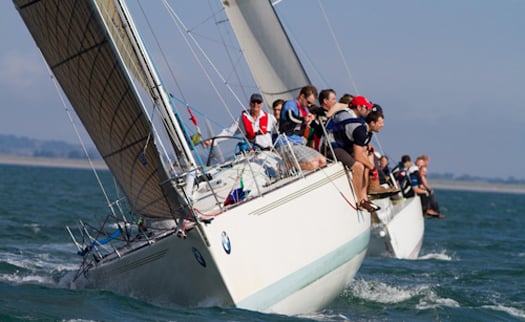
Loose Change, the winner of Class O IRC & Echo at the RIYC September Series. Photo: Aidan Tarbett
In the bigger cruisers I division Howth visitor – and ICRA's Boat of the year – Storm (The Kelly family) topped Cruisers IRC One with Paul O'Higgin's Rockabill V second.
Full results are available to download as an excel file below in each of the 11 racing divisions.
The event was supported by DBSC and the DMYC. Sponsors were Medico, The Flying Spanners and Bacchus Vinos.
Manx Yacht Wins Irish Beneteau 31.7 Title (Photos here!)
#beneteau31.7 – Manx Entry Eauvation sailed by Jason & Debbie Corlett were winners of the Irish Beneteau 31.7 Irish National Championships at the Royal Irish Yacht Club (RIYC) at the weekend. The overall results on Dublin Bay were as follows:
Scratch
1st Eauvation - Jason & Drbbie Corlett
2nd Levana - Jean Mitton
3rd Extreme Reality - Brendan Farrell
Echo
1st Dies Irae - Patrick Rowan
2nd Prima Nocte - Burk/Kennedy
3rd Kernach - Eoin O'Driscoll
Royal Irish (RIYC) Launch New Weekend September Series
#riyc – The Royal Irish Yacht Club (RIYC) is extending the Dublin sailing season with the addition of a new September regatta weekend that incorporates results from the DBSC series as well as the DMYC series that run concurrently on the bay.
The Cruisers 0, 1, 2, 3, Whitesails, Sigma 33 and 31.7's series takes place next weekend (8th-9th September 2012). The Notice of Race (NOR), entry form and schedule are available to download below as word docs.
The schedule for the RIYC series is :
Race 1. 8th September 1030 hrs. Windward/Leeward or Fixed Mark Course.
Race 2. 8th September ASAP after Race 1. Windward/Leeward or Fixed Mark Course.
Race 3. 8th September. As per normal DBSC Schedule.
Race 4. 9th September 1025 hrs. As per DMYC September Series NOR
Race 5. 9th September. ASAP after Race 4. Windward/Leeward or Fixed mark course.
In a busy autumn RIYC will also host DBSC's Turkey Shoot series that runs until Christmas.
#Irish Sailing – Foxall ready to step in to the history books, as Galway set for VOR arrival, Ben Duncan puts on an SB20 display in Tralee, Noel Butler and Stephen Oram Win Fireball Nationals, Barry Hurley wins first Round Rockall Race, an amazing last stretch performance gives Inis Mor Round Ireland victory, Kenefick retains Corinthian Quarter ton Crown, All the Royal Irish Regatta results and why its all over for the Volvo 70s in Galway. A Mermaid is battling on against the showers in a five hundred mile voyage from Foynes to Skerries.



























